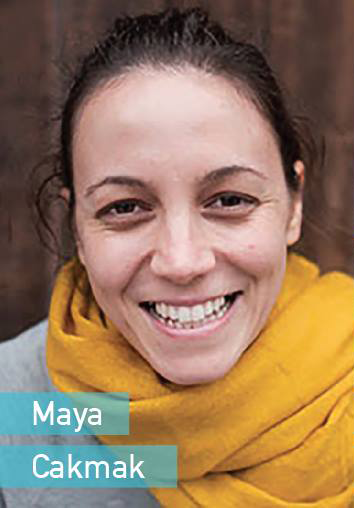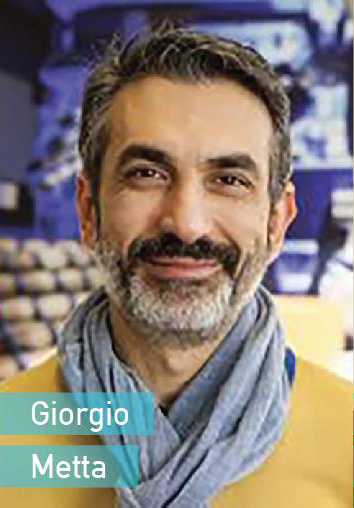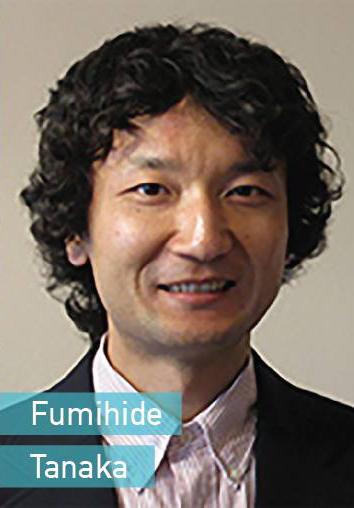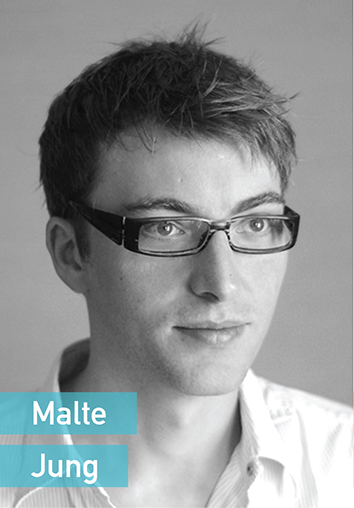Keeping in line with the conference theme, the theme of the panel is "How do We Achieve Human-Robot Smart Interaction?", focusing on what we understand by "smart / intelligent interaction" and what the most promising avenues and directions are for succeeding in creating it.
The panel consists of Maya Cakmak, Giorgio Metta, Fumihide Tanaka, Bradley Hayes and Malte Jung.
The three keynote presentations during the workshop will be given by Maya Cakmak, Giorgio Metta and Fumihide Tanaka.

Maya Cakmak is an Assistant Professor at the University of Washington, Computer Science & Engineering Department, where she directs the Human-Centered Robotics Lab. She holds a B.Sc. degree in Electrical & Electronics Engineering and a M.Sc. degree in Computer Engineering from the Middle East Technical Univesity in Turkey, where she started doing research in Robotics at the Kovan Lab, with her advisor Erol Sahin. Maya received her Ph.D. in Robotics at the Georgia Institute of Technology in 2012, after working five years at the Socially Intelligent Machines Lab with her advisor Andrea L. Thomaz. Afterwards, she spent a year as a post-doctoral research fellow at Willow Garage, Inc. working with Leila Takayama. Maya's research interests are in human-robot interaction, end-user programming, and assistive robotics. She aims to develop robots that can be programmed and controlled by a diverse group of users with unique needs and preferences to do useful tasks.

Giorgio Metta is Vice Scientific Director at the Istituto Italiano di Tecnologia (IIT) and Director of the iCub Facility Department at the same institute. He coordinates the development of the iCub robotic project.
He holds an MSc cum laude (1994) and PhD (2000) in electronic engineering both from the University of Genoa. From 2001 to 2002, he was postdoctoral associate at the MIT AI-Lab. He was previously with the University of Genoa and since 2012 Professor of Cognitive Robotics at the University of Plymouth (UK). He is also deputy director of IIT delegate to the training of young researchers. He is member of the board of directors of euRobotics aisbl, the European reference organization for robotics research.
Giorgio Metta research activities are in the fields of biologically motivated and humanoid robotics and, in particular, in developing humanoid robots that can adapt and learn from experience. Giorgio Metta is author of more than 250 scientific publications. He has been working as principal investigator and research scientist in about a dozen international as well as national funded projects.

Fumihide Tanaka received a Ph.D. from Tokyo Institute of Technology in 2003. His dissertation was about multitask (lifelong) reinforcement learning. Then, he joined Sony Corporation as a research engineer for entertainment robots, AIBO/QRIO. In 2004, he started a collaborative research project with the Machine Perception Laboratory in the University of California, San Diego where he and his colleagues conducted a long-term field study of robots interacting with young children in a nursery school. Since then he has been actively working in the area of educational robots and child-robot interaction, and now is recognized as one of the pioneers in this research area. He moved to academia in 2008, the University of Tokyo (ISI Lab directed by Prof. Yasuo Kuniyoshi, -2014), and the University of Tsukuba (current).

Bradley Hayes is a Postdoctoral Associate in the Interactive Robotics Group at the Massachusetts Institute of Technology. Brad's research interests center around the development and evaluation of algorithms necessary for building supportive, interactive, and intuitive robotic systems that are capable of performing complex collaborative tasks in environments shared with humans. His work exists at the intersection of learning from demonstration, intention recognition, human teaming psychology, and task and motion planning. Brad received his Ph.D. in Computer Science from Yale University, working with Brian Scassellati. He actively participates in the organization of the AAAI Fall Symposium on Artificial Intelligence for Human-Robot Interaction Symposium (AI-HRI), having served as the general chair of both the 2015 HRI Workshop on Human-Robot Teaming and AI-HRI 2015.

Malte Jung is an Assistant Professor in Information Science at Cornell University and the Nancy H. ’62 and Philip M. ’62 Young Sesquicentennial Faculty Fellow. His research focuses on the intersections of teamwork, robots, and emotion. The goal of his research is to inform our basic understanding of robots in work teams as well as to inform how we design technology to support teamwork across a wide range of settings. Malte directs the Robots in Groups Lab, which explores questions that emerge around the placement of robots within work groups and teams. Malte Jung received his Ph.D. in Mechanical Engineering and his Ph.D. minor in Psychology from Stanford University. Prior to joining Cornell, Malte Jung completed a postdoc at the Center for Work, Technology, and Organization at Stanford University. He also holds a Diploma in Mechanical Engineering from the Technical University of Munich.